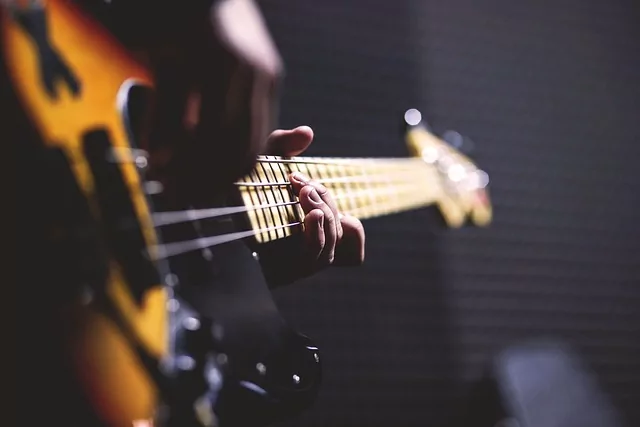Contents
Avoid Mistakes With The Help Of Real Practice Student Videos!
In online courses, you just get to see how playing the guitar works. This course will also teach you what does not work. You get to see what mistakes occur again and again (patterns) in online guitar lessons. Videos of guitar students show you the mistakes you should avoid from the very beginning.
The guitar, one of the most recognizable and popular musical instruments in the modern world, has a long and intriguing history. While the guitar as we know it today evolved in its current shape in the nineteenth century, its roots may be traced back to ancient civilizations. The guitar’s voyage through history illustrates its continuing appeal and relevance in human society, from its roots in Mesopotamia through its presence in ancient Egypt, Greece, and Rome.

Early Lutes and Mesopotamia
The guitar’s origins can be traced back to ancient Mesopotamia, one of civilization’s cradles. Archaeological evidence reveals that lute-like stringed instruments were present in the region as early as 2000 BCE. Mesopotamian lute-like devices have a resonating body with a rounded back and a varied number of strings. Wood, bone, and skin were used to make these instruments.
The Harp and Ancient Egypt
The harp was important in music and religious rites in ancient Egypt. The harp was a stringed instrument with a triangular frame and multiple gut or plant fiber strings. Harps are depicted on ancient Egyptian tombs, demonstrating their importance in the afterlife as well as their relationship with music and amusement. While not a direct progenitor of the guitar, the harp is a member of the stringed instrument family and exemplifies the early obsession with generating music through plucked strings.
The Kithara and Ancient Greece
The evolution of guitar-like instruments was greatly aided by Ancient Greece. The kithara, a larger and more complex counterpart of the lyre, was a prominent ancient Greek musical instrument. The kithara was played with a plectrum or pick and had a boxy resonating body. It was frequently played by professional musicians and entertainers in both secular and religious venues. The kithara’s design and playing techniques influenced other stringed instruments, notably the guitar.
The Cithara and Ancient Rome
The cithara was a popular instrument among the ancient Romans, who were also fans of music. The cithara, like the kithara of ancient Greece, was popular for public performances and entertainment. Roman writers such as Virgil and Horace lauded the cithara for its ability to arouse emotions and instill a sense of patriotism and pride. The popularity of the cithara in ancient Rome demonstrates the continuing attraction of stringed instruments throughout history.
Stringed Instrument Evolution and Dissemination
Stringed instruments evolved and diversified throughout numerous civilizations over the years. The Moorish influence in Spain throughout the Middle Ages brought new stringed instruments like the oud, which, along with the Arab lute, contributed to the development of the contemporary guitar. These instruments combined and changed over time, giving rise to numerous types of guitar-like instruments, finally leading to the invention of contemporary classical and acoustic guitars in the nineteenth century.
The journey of the guitar through ancient civilizations demonstrates its enduring appeal and relevance in human society. The evolution of the guitar was shaped by the imagination and genius of our forefathers, from its earliest progenitors in Mesopotamia through its appearance in ancient Egypt, Greece, and Rome. These ancient civilizations acknowledged the potential of music to improve their lives and connect them with the holy.
The modern guitar we adore today is a monument to our forefathers’ brilliance and the worldwide attraction of music. We are not only connected to the rich history of this ageless instrument when we pluck the strings of the guitar, but also to the collective human experience of expressing emotions, telling tales, and creating art through music. The voyage of the guitar through time has demonstrated that its magic transcends ages and civilizations, and it will definitely continue to captivate and inspire future generations.
Avoid Mistakes With The Help Of Real Practice Student Videos!
In online courses, you just get to see how playing the guitar works. This course will also teach you what does not work. You get to see what mistakes occur again and again (patterns) in online guitar lessons. Videos of guitar students show you the mistakes you should avoid from the very beginning.
